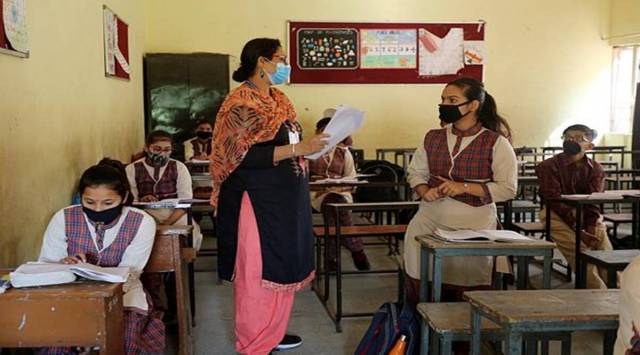Odisha readies learning loss tests and extracurricular activities as schools reopen on February 28
The education department says it is important that the students who will be sitting in classrooms for six-seven hours again feel at ease. It will assess the children for their skills in English, maths and Odia to address issues of learning loss.
 For the first week, extracurricular activities such as storytelling, making art and crafts, painting, solving puzzles and clay modelling have been suggested.
For the first week, extracurricular activities such as storytelling, making art and crafts, painting, solving puzzles and clay modelling have been suggested.
As students of Classes I to VII are set to return to school on February 28, the Odisha government has made elaborate arrangements to ensure they get accustomed to the new environment, having been away from classrooms for two years.
The education department has asked schools to engage students in extracurricular activities for a week to make them familiar with in-person classes again. “We understand that the students have been away from school for a long time now. With the pandemic and the lockdown, we don’t know how the past two years have affected the students individually. It is important that once they are back to classrooms—after so long and away from their homes—for six-seven hours again, the students feel at ease. They will be meeting their friends and teachers in person and we want to give the students enough time to feel comfortable,” a senior official from the school and mass education department said.
For the first week, extracurricular activities such as storytelling, making art and crafts, painting, solving puzzles and clay modelling have been suggested.
“We also want the students to share without inhibitions how the two years had been for them, how the pandemic had affected them, what they had done, and what they plan to do. Through discussions and storytelling activities, we will let the students communicate candidly,” said Laxminarayan Acharya, a deputy secretary in the department.
Schools will also assess the children for their skills in English, maths and Odia on March 9, 10 and 11, respectively, at three levels—Class I; Class II & III; and Class IV & V. “We intend to identify the learning status of each student. This will help us work on bridging the learning loss caused due to the two-year gap,” Acharya said.
In rural areas where students haven’t benefited from virtual learning because of lack of internet penetration, teachers and school staff have been directed to visit each household and ensure that students attend the in-person classes. Of the 60 lakh students studying at elementary, secondary and higher secondary levels in the state, only 40 per cent had access to digital learning till last year.







